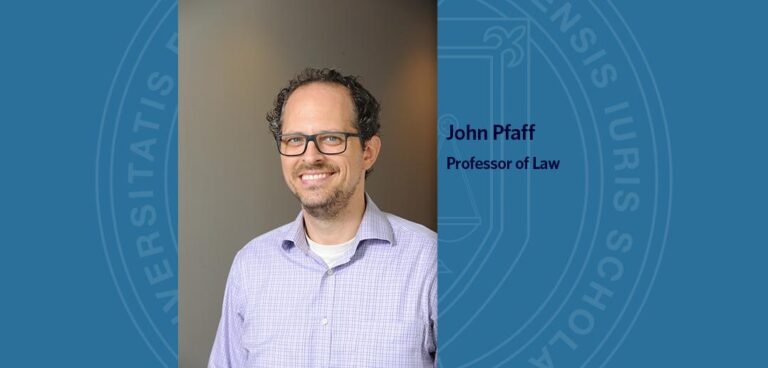San FranciscoŌĆÖs Criminal Justice Reform: Navigating Progress and Public Safety Concerns
Rising Criticism of Progressive Prosecutors Amid Increasing Crime Rates
In recent years, San Francisco has become a prominent example in the national conversation on criminal justice reform, with its progressive district attorneys championing policies designed to reduce incarceration and tackle systemic disparities. However, as crime rates have risen in the city and other metropolitan areas, these reform efforts have faced intensified criticism from residents, law enforcement, and political opponents. Detractors contend that initiatives such as lowering bail requirements and diverting low-level offenders from jail have unintentionally empowered repeat criminals, thereby undermining community safety.
This backlash has been particularly pronounced in San Francisco, where a series of violent incidents and high-profile cases have fueled debates about the effectiveness and limits of progressive prosecution. In response, some reform-minded prosecutors are recalibrating their strategies to better balance the goals of justice reform with the imperative of public protection.
- Strengthening Community Partnerships: Increasing engagement with local residents to better understand their safety concerns and priorities.
- Prioritizing Serious Offenses: Allocating prosecutorial resources toward violent and repeat offenders rather than minor infractions.
- Improving Transparency: Sharing clear data and explanations regarding charging decisions to foster public trust.
| Reform Initiative | Anticipated Benefit | Obstacles Encountered |
|---|---|---|
| Alternative Sentencing Options | Lower incarceration rates | Insufficient funding and infrastructure |
| Enhanced Support for Victims | Build stronger community confidence | Balancing victim advocacy with offender rehabilitation |
| Open Data Policies | Greater accountability and oversight | Legal complexities and privacy concerns |
Reevaluating Bail Reform: Unforeseen Challenges and Lessons Learned
San FranciscoŌĆÖs bold efforts to overhaul the bail systemŌĆöaimed at reducing pretrial detention for low-level offensesŌĆöhave prompted a critical reassessment of how such reforms impact public safety. While the original intent was to dismantle a system that disproportionately affected marginalized populations, the city has witnessed a troubling rise in recidivism and violent crime, leading to renewed scrutiny of bail elimination policies.
Key issues identified in this reassessment include:
- Inadequate Use of Risk Assessment: Tools designed to evaluate offender risk have sometimes been misapplied, failing to distinguish between low-risk and dangerous individuals.
- Insufficient Community Support Services: A shortage of mental health and substance abuse programs has hindered effective rehabilitation.
- Systemic Case Management Gaps: Delays and inefficiencies in court processes have allowed some offenders to exploit procedural loopholes.
| Reform Component | Original Objective | Unexpected Outcome |
|---|---|---|
| Elimination of Cash Bail | Reduce unnecessary pretrial incarceration | Increase in repeat criminal activity |
| Focus on Nonviolent Crimes | Concentrate resources on violent offenders | Overlooked emerging threats from certain nonviolent offenses |
| Diversion and Alternative Programs | Provide incarceration alternatives | Limited program capacity and funding shortfalls |
Innovative Approaches to Harmonize Justice Reform with Community Safety
Progressive prosecutors are increasingly adopting comprehensive, data-informed strategies that seek to reconcile the pursuit of criminal justice reform with the communityŌĆÖs demand for safety and accountability. Central to these efforts is the use of real-time data analytics to monitor outcomes and adjust policies accordingly. Tailored diversion programs, emphasizing rehabilitation over punishment for nonviolent offenders, are being expanded to reduce jail populations while promoting healthier, safer neighborhoods.
Emerging best practices include:
- Collaborating closely with social service agencies to address underlying causes of criminal behavior.
- Maintaining open, transparent communication channels to rebuild public confidence.
- Implementing training programs focused on implicit bias to ensure fair prosecutorial decisions.
- Applying restorative justice models that facilitate constructive dialogue between victims and offenders.
| Strategy | Desired Result |
|---|---|
| Data-Driven Sentencing Reforms | Lower rates of repeat offenses |
| Community Engagement Initiatives | Strengthened public trust |
| Implicit Bias Training | More equitable case outcomes |
| Restorative Justice Programs | Facilitate victim-offender healing |
Restoring Public Confidence Through Transparency and Collaboration
Facing heightened political pressure, San FranciscoŌĆÖs progressive prosecutors are prioritizing transparency and community involvement to repair strained relationships with residents. Recognizing that trust is essential for effective justice, they have increased efforts to hold open forums, establish community advisory boards, and engage in collaborative problem-solving. These initiatives aim not only to clarify prosecutorial decisions but also to incorporate community input into policy development, fostering a culture of ongoing dialogue rather than reactive communication.
Key tactics include:
- Regularly scheduled town hall meetings to directly address public concerns.
- Publishing comprehensive reports on case outcomes to enhance accountability.
- Partnering with grassroots organizations to co-create community safety programs.
- Providing staff training on cultural competency and implicit bias reduction.
| Initiative | Community Advantage | Prosecutorial Objective |
|---|---|---|
| Town Hall Forums | Greater public participation | Increased transparency |
| Case Outcome Transparency | Better-informed citizens | Enhanced accountability |
| Grassroots Collaboration | Stronger community networks | Policies shaped by local input |
| Staff Development Programs | Improved community relations | Reduction of bias in prosecutions |
Conclusion: Lessons from San FranciscoŌĆÖs Reform Journey
As progressive prosecution continues to evolve across the United States, San FranciscoŌĆÖs recent experiences provide valuable lessons for balancing reform with public safety. The cityŌĆÖs challenges highlight the necessity of transparency, responsiveness, and community engagement in sustaining public trust while pursuing systemic change. Moving forward, prosecutors must carefully navigate these complexities to ensure that efforts to transform the criminal justice system do not compromise the safety and confidence of the communities they serve.




